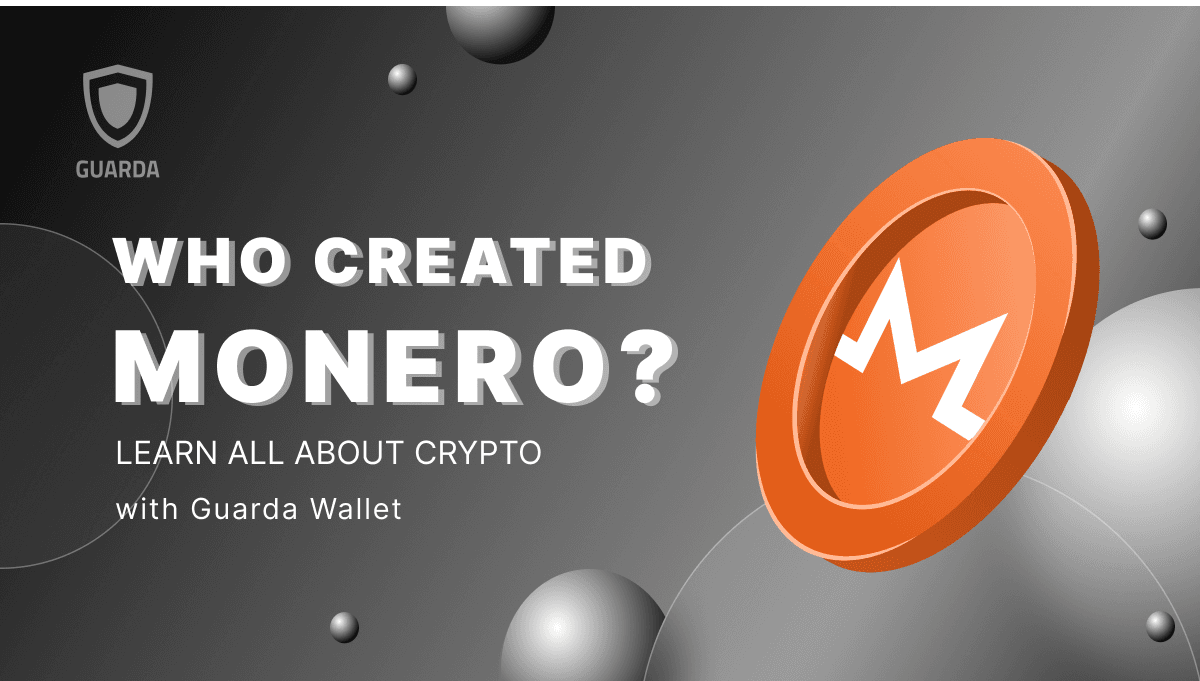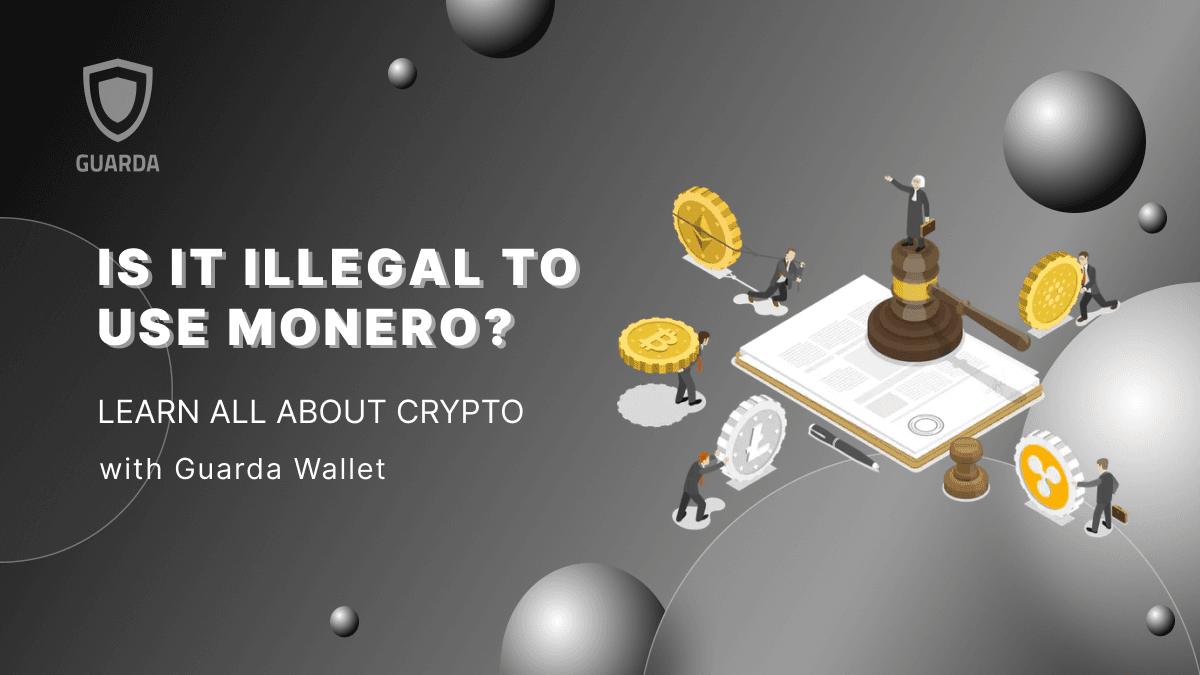In the dynamic realm of blockchain and cryptocurrency, the acronym dApp, standing for decentralized applications, often comes into play. So, what is a dApp when we talk about blockchain? Distinct from conventional apps that operate on isolated computers or servers, dApps are the embodiment of the transition from centralized structures to a distributed infrastructure, capturing the core of dApps meaning within the contemporary discourse of blockchain.
Remember, Guarda Wallet always empowers users to explore and use top dApps with confidence.
What is a DApp in Blockchain?
At its foundation, a dApp in blockchain is an application that runs on a decentralized network of computers, powered by blockchain technology. Unlike traditional centralized applications, a decentralized app operates independently of a single governing authority, marking a significant shift from the standard client-server architecture.
This decentralized structure allows dApps in blockchain to break free from centralized constraints, mitigating risks of single points of failure and fostering a user-centric, democratic environment. The significance of dApps extends to a range of applications that are not only open-source and self-governing but also preserve their data and records on a public blockchain to prevent any single point of collapse.
How DApps Function?
DApps in blockchain connect participants and service providers directly. Imagine a ride-sharing decentralized app that operates similarly to Uber but without a company acting as an intermediary. Drivers and riders engage directly with each other via smart contracts, which are automated agreements with the conditions explicitly coded into the software.
The Rise of Web3 DApps
The discussion around what is a dApp in blockchain expands significantly when Web3 enters the picture. Web3 dApps are at the forefront of redefining digital interactions, commerce, and the formation of online communities, emphasizing user data control.
Web3 dApp technology extends beyond mere financial exchanges to revolutionize social platforms, digital marketplaces, and beyond. Furthermore, Web3 dApps are designed to integrate effortlessly with a decentralized wallet app, providing users with autonomy over their digital identities, assets, and data, circumventing conventional intermediaries.
DApps Meaning in the World of DeFi
Within the sphere of decentralized finance, or DeFi, dApps emerge as a revolutionary force. These DeFi dApps harness blockchain’s capabilities to reimagine and refine financial services, including lending, borrowing, and trading. Accessible globally, they invite participation from anyone, anywhere, with just a decentralized wallet needed for engagement. This key feature of DeFi dApps removes intermediaries, lowers costs, and democratizes access to financial services, even for those historically marginalized.
The surge of DeFi dApp solutions has sparked a wave of innovation and growth in the blockchain domain. They facilitate intricate financial mechanisms like yield farming and liquidity mining, which traditional finance systems couldn’t support. Thus, DeFi dApps are pivotal to the blockchain sector’s unique offerings and growth trajectory.
The Advantages of Decentralized Applications (DApps)
Having clarified what a dApp in blockchain is, we can highlight its advantages:
- Open Source: The foundation of a dApp is its codebase, which is typically open for public inspection and collaborative enhancements, encouraging a community-led development ethos.
- Decentralized: DApps in blockchain maintain a ledger of modifications and transactions that is accessible to all, ensuring transparency.
- Incentivized: DApps often use tokens to compensate participants for their network-supporting activities, like transaction verification, to promote the health of the ecosystem.
- Robust: With support from numerous nodes, dApps lack a single failure point, enhancing their robustness against disruptions and security threats.
DApps: A Deep Dive into Examples
When exploring dApp examples, Ethereum often comes to mind. Ethereum dApps have been at the forefront of this movement, leveraging smart contracts to automate processes and create a range of applications - from games to complex financial protocols. Ethereum’s robust smart contract functionality makes it a popular choice for developers looking to build advanced decentralized apps.
While Ethereum has been a leader in the space, other blockchains like Polygon, Solana, and Cardano are making strides with their own dApps. Here is some dApp examples information:
- Polygon dApps benefit from Ethereum’s security with added scalability.
- Solana dApps provide fast-moving transactions with lower costs.
- Cardano dApps are emerging with a priority on sustainability and peer-reviewed research.
When it comes to identifying the most popular dApps, one can observe user engagement and transaction volumes to gauge activity. Across Ethereum dApps, Polygon dApps, and Solana dApps, there are top dApps in various categories, including gaming, finance, and social media. These top dApps have played a crucial role in demonstrating the capabilities of decentralized networks.
The Role of Guarda Wallet in the DApp Ecosystem
The decentralized wallet app plays a crucial role in the dApp ecosystem. Guarda Wallet (https://guarda.com/) serves as a portal to the world of decentralized applications (dApps), delivering a safe environment for users to engage with dApps spanning multiple blockchains. It streamlines the process, presenting a single interface for seamless navigation of the decentralized web.
Conclusion: The Future is Decentralized
Whether it’s through a decentralized wallet app or engaging with most popular dApps, the experience of using decentralized applications (dApps) is a peek to a future where decentralization is not merely a trendy term but a reality that provides a secure, transparent, and equitable internet for all.
DApps meaning represents a significant milestone in the journey towards a decentralized future. Remember, whether it’s participating in decentralized finance (DeFi), playing blockchain-based games, or utilizing decentralized social networks, Guarda offers a safe and straightforward path to navigate this revolutionary landscape.



